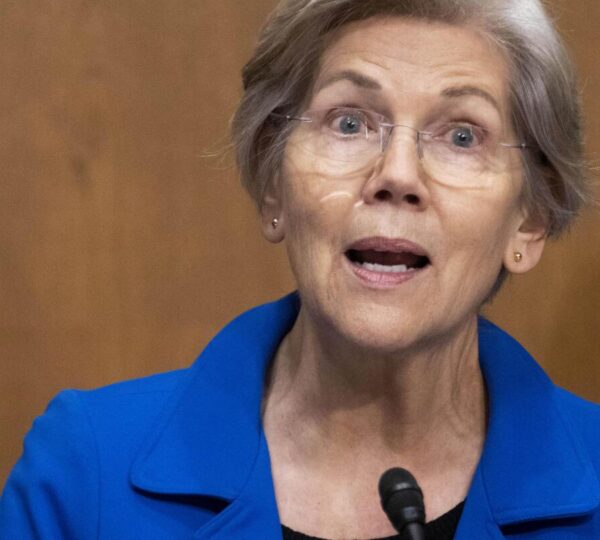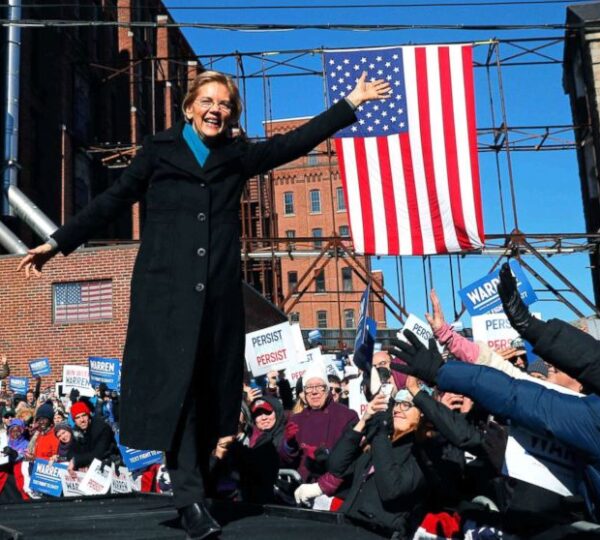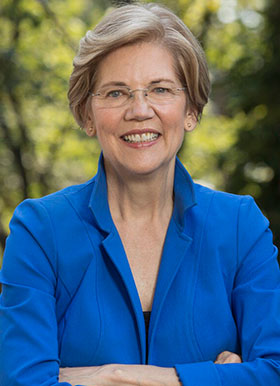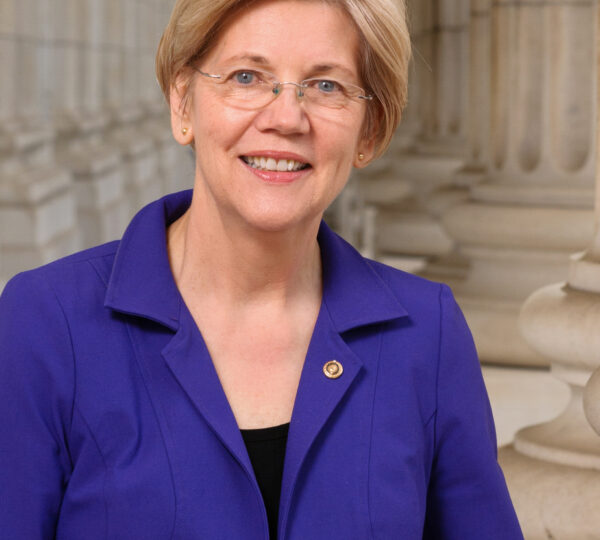A Deep, Comprehensive, and Extensive Analysis of Her Re-Election Bid, Party Dynamics, and the Broader Political Landscape
Senator Elizabeth Warren, one of the most influential political figures in the modern Democratic Party, has officially announced her intention to run for re-election to the United States Senate. Her decision comes at a critical moment for both Massachusetts and the nation, as the political environment grows increasingly complex ahead of the 2024 election cycle. Warren’s announcement not only clarifies her personal political plans but also signals how deeply she intends to remain involved in shaping national policy, economic reform, and the direction of the Democratic Party.
This extended analysis will explore the full context surrounding her announcement: her political history, her policy legacy, the speculation that preceded her decision, the internal dynamics within the Democratic Party, reactions from voters and analysts, and what her re-election effort could mean for the balance of power in Washington.
I. A Decade of Influence: Elizabeth Warren’s Journey to the U.S. Senate
Before Warren became a nationally recognized senator, she was a professor and one of the country’s strongest voices on consumer protection. Her academic research into bankruptcy, the financial struggles of middle-class families, and the structural issues affecting American households placed her in a unique position during the 2008 financial crisis.
Her roles included:
-
Serving on the Congressional Oversight Panel overseeing the bank bailout
-
Designing and advocating for the Consumer Financial Protection Bureau (CFPB)
-
Becoming a national advocate for financial fairness
The CFPB, a major achievement credited significantly to her efforts, was created to protect consumers from abusive financial practices. Although Warren was not ultimately appointed as the agency’s first director, her leadership in establishing it cemented her reputation as one of the most effective policy architects in Washington.
This reputation helped fuel her Senate run in 2012, where she became the first woman elected to the U.S. Senate from Massachusetts.

II. Her Senate Career: What She Has Focused On
Throughout her tenure, Warren has positioned herself as a champion of the middle class. Her work in the Senate shows consistent attention to specific issues:
Economic Fairness and Tax Reform
Warren has argued for policies aimed at reducing economic inequality, including:
-
Wealth taxes on ultra-wealthy individuals
-
Closing corporate loopholes
-
Strengthening IRS resources
-
Increasing protections for everyday consumers
Healthcare and Prescription Drug Costs
She has supported efforts to lower drug prices, expand healthcare access, strengthen Medicare, and protect the Affordable Care Act.
Education and Student Loan Reform
One of Warren’s signature issues is addressing student debt. She has:
-
Championed refinancing options
-
Pushed for cancellation of certain categories of student loans
-
Pressed for greater accountability from loan servicers
Climate Action and Environmental Policy
Warren has consistently supported climate legislation, green infrastructure investment, and policies promoting clean energy solutions for Massachusetts.
Consumer Protection and Financial Regulation
Building on her expertise, she has remained relentless in scrutinizing:
-
Major banks
-
Financial institutions
-
Credit reporting companies
-
Corporate practices affecting consumers
Her style — direct, detailed, and data-driven — has made her one of the most respected and visible lawmakers in the Senate.

III. The Announcement: A Call for Continued Leadership
Warren released a polished video message explaining why she is seeking another term. In it, she emphasized:
-
The progress made so far
-
The challenges still ahead
-
Her belief that the Senate needs strong voices during times of change
Her announcement video included testimonials from Massachusetts voters, comments from local leaders, and footage illustrating her work in the Senate. She framed the message around the idea that meaningful change requires persistence and that many of the issues she has spent her career addressing are far from resolved.
IV. Timing and National Context
Her announcement did not happen in isolation. It emerged during a politically intense period, and several factors made the timing important:
1. A Shifting Democratic Map
The Senate map for the 2024 election is extremely challenging for Democrats. Several seats are at risk, and the party is depending heavily on strong incumbents like Warren to maintain stability.
2. Internal Party Conversations
The Democratic Party is undergoing generational and ideological shifts. Leaders like Warren help bridge gaps between progressive activists, long-time moderates, and emerging political voices.
3. Increased Public Attention on Key Figures
As 2024 approaches, the party is under scrutiny for how it positions its leaders — including the president, vice president, and nationally recognized senators like Warren.

V. The Harris-Warren Moment: A Small Comment, a Big Reaction
A few months before the announcement, Warren made headlines when she did not immediately endorse Vice President Kamala Harris as President Biden’s running mate for 2024. Her intention was to respect Biden’s authority to select the team he feels most comfortable with, but her words were interpreted by some as hesitation.
This sparked:
-
Media commentary
-
Questions from party strategists
-
Discussions about unity ahead of 2024
Warren later clarified her comments, explaining that she strongly supports the Biden-Harris ticket and that she never intended to imply otherwise. She also referenced her long professional relationship with Harris dating back to the housing crisis, emphasizing mutual respect.
This clarification was important because it helped restore clarity within the party at a moment when any perceived division could have been amplified by political opponents.
VI. A Broader Look at Concerns About Vice President Harris
The conversation surrounding Harris extends beyond Warren. Analysts and insiders have raised points such as:
Visibility Challenges
Many believe Harris has received assignments that involve long-term, complicated issues that do not produce fast-paced results. This may make her accomplishments harder to communicate in the public arena.
Expectations and Public Perception
As the first woman, first Black woman, and first woman of South Asian heritage to serve as vice president, expectations have been extraordinarily high, and scrutiny has been exceptionally intense.
Internal Party Opinions
Some Democratic strategists privately express concerns about messaging and public engagement, while others argue that Harris has taken on some of the most difficult tasks in the administration.
Warren’s support helps reinforce unity, but these conversations will continue playing a role in the party’s strategy leading into 2024.

VII. What Warren’s Re-Election Means for Massachusetts
Massachusetts has benefited extensively from Warren’s leadership, and her continued presence in the Senate promises more of the same.
Infrastructure and Transportation
Warren has helped secure federal funding for key infrastructure projects, including:
-
Roads
-
Bridges
-
Transit expansions
-
Climate-resilient infrastructure
Higher Education and Research Investment
Massachusetts is home to world-class universities, research centers, and technological hubs. Warren has consistently advocated for:
-
Increasing federal research grants
-
Supporting innovation
-
Strengthening the local workforce
Healthcare and Biotech
As a healthcare and biotech leader, Massachusetts benefits from Warren’s work on medical access, affordability, and scientific advancement.
Small Business Support
She has pushed for emergency relief, loan programs, and grants to help Massachusetts businesses weather economic disruptions.

Cropped Approved CFF
VIII. Warren’s Role in the National Democratic Strategy
Warren is not simply a state leader — she is one of the party’s most recognizable national voices. Her role includes:
-
Helping shape economic messaging
-
Advising party leaders
-
Influencing corporate accountability efforts
-
Providing national fundraising power
-
Offering legislative expertise
Her re-election ensures that Democrats retain a high-profile, policy-rich voice in the Senate.
IX. The Future: What Warren Plans to Prioritize
As she steps into her campaign, Warren has outlined several long-term priorities:
-
Affordable childcare and family support policies
-
Climate change mitigation
-
Affordable housing expansion
-
Stronger consumer protections
-
Continued student loan reforms
-
Healthcare affordability
-
Workforce development and job creation
Her message emphasizes that economic fairness remains at the center of her mission.
X. Conclusion: A Stable Voice in an Uncertain Political Era
Elizabeth Warren’s decision to run for re-election reinforces her deep commitment to public service. At a time of intense political polarization, economic challenges, and shifting voter expectations, Warren’s experience provides continuity and leadership. Her policy knowledge, national influence, and dedication to working families ensure that she will remain a central figure in American politics for years to come.
Her campaign, expected to be vigorous and highly engaged with Massachusetts communities, will likely highlight both her accomplishments and her vision for the future. As the 2024 election approaches, Warren’s re-election effort will play a significant role in the Democratic Party’s overall strategy and in shaping the direction of national policy debates.
A Deep, Comprehensive, and Extensive Analysis of Her Re-Election Bid, Party Dynamics, and the Broader Political Landscape
Senator Elizabeth Warren, one of the most influential political figures in the modern Democratic Party, has officially announced her intention to run for re-election to the United States Senate. Her decision comes at a critical moment for both Massachusetts and the nation, as the political environment grows increasingly complex ahead of the 2024 election cycle. Warren’s announcement not only clarifies her personal political plans but also signals how deeply she intends to remain involved in shaping national policy, economic reform, and the direction of the Democratic Party.
This extended analysis will explore the full context surrounding her announcement: her political history, her policy legacy, the speculation that preceded her decision, the internal dynamics within the Democratic Party, reactions from voters and analysts, and what her re-election effort could mean for the balance of power in Washington.
I. A Decade of Influence: Elizabeth Warren’s Journey to the U.S. Senate
Before Warren became a nationally recognized senator, she was a professor and one of the country’s strongest voices on consumer protection. Her academic research into bankruptcy, the financial struggles of middle-class families, and the structural issues affecting American households placed her in a unique position during the 2008 financial crisis.
Her roles included:
-
Serving on the Congressional Oversight Panel overseeing the bank bailout
-
Designing and advocating for the Consumer Financial Protection Bureau (CFPB)
-
Becoming a national advocate for financial fairness
The CFPB, a major achievement credited significantly to her efforts, was created to protect consumers from abusive financial practices. Although Warren was not ultimately appointed as the agency’s first director, her leadership in establishing it cemented her reputation as one of the most effective policy architects in Washington.
This reputation helped fuel her Senate run in 2012, where she became the first woman elected to the U.S. Senate from Massachusetts.

II. Her Senate Career: What She Has Focused On
Throughout her tenure, Warren has positioned herself as a champion of the middle class. Her work in the Senate shows consistent attention to specific issues:
Economic Fairness and Tax Reform
Warren has argued for policies aimed at reducing economic inequality, including:
-
Wealth taxes on ultra-wealthy individuals
-
Closing corporate loopholes
-
Strengthening IRS resources
-
Increasing protections for everyday consumers
Healthcare and Prescription Drug Costs
She has supported efforts to lower drug prices, expand healthcare access, strengthen Medicare, and protect the Affordable Care Act.
Education and Student Loan Reform
One of Warren’s signature issues is addressing student debt. She has:
-
Championed refinancing options
-
Pushed for cancellation of certain categories of student loans
-
Pressed for greater accountability from loan servicers
Climate Action and Environmental Policy
Warren has consistently supported climate legislation, green infrastructure investment, and policies promoting clean energy solutions for Massachusetts.
Consumer Protection and Financial Regulation
Building on her expertise, she has remained relentless in scrutinizing:
-
Major banks
-
Financial institutions
-
Credit reporting companies
-
Corporate practices affecting consumers
Her style — direct, detailed, and data-driven — has made her one of the most respected and visible lawmakers in the Senate.

III. The Announcement: A Call for Continued Leadership
Warren released a polished video message explaining why she is seeking another term. In it, she emphasized:
-
The progress made so far
-
The challenges still ahead
-
Her belief that the Senate needs strong voices during times of change
Her announcement video included testimonials from Massachusetts voters, comments from local leaders, and footage illustrating her work in the Senate. She framed the message around the idea that meaningful change requires persistence and that many of the issues she has spent her career addressing are far from resolved.
IV. Timing and National Context
Her announcement did not happen in isolation. It emerged during a politically intense period, and several factors made the timing important:
1. A Shifting Democratic Map
The Senate map for the 2024 election is extremely challenging for Democrats. Several seats are at risk, and the party is depending heavily on strong incumbents like Warren to maintain stability.
2. Internal Party Conversations
The Democratic Party is undergoing generational and ideological shifts. Leaders like Warren help bridge gaps between progressive activists, long-time moderates, and emerging political voices.
3. Increased Public Attention on Key Figures
As 2024 approaches, the party is under scrutiny for how it positions its leaders — including the president, vice president, and nationally recognized senators like Warren.

V. The Harris-Warren Moment: A Small Comment, a Big Reaction
A few months before the announcement, Warren made headlines when she did not immediately endorse Vice President Kamala Harris as President Biden’s running mate for 2024. Her intention was to respect Biden’s authority to select the team he feels most comfortable with, but her words were interpreted by some as hesitation.
This sparked:
-
Media commentary
-
Questions from party strategists
-
Discussions about unity ahead of 2024
Warren later clarified her comments, explaining that she strongly supports the Biden-Harris ticket and that she never intended to imply otherwise. She also referenced her long professional relationship with Harris dating back to the housing crisis, emphasizing mutual respect.
This clarification was important because it helped restore clarity within the party at a moment when any perceived division could have been amplified by political opponents.
VI. A Broader Look at Concerns About Vice President Harris
The conversation surrounding Harris extends beyond Warren. Analysts and insiders have raised points such as:
Visibility Challenges
Many believe Harris has received assignments that involve long-term, complicated issues that do not produce fast-paced results. This may make her accomplishments harder to communicate in the public arena.
Expectations and Public Perception
As the first woman, first Black woman, and first woman of South Asian heritage to serve as vice president, expectations have been extraordinarily high, and scrutiny has been exceptionally intense.
Internal Party Opinions
Some Democratic strategists privately express concerns about messaging and public engagement, while others argue that Harris has taken on some of the most difficult tasks in the administration.
Warren’s support helps reinforce unity, but these conversations will continue playing a role in the party’s strategy leading into 2024.

VII. What Warren’s Re-Election Means for Massachusetts
Massachusetts has benefited extensively from Warren’s leadership, and her continued presence in the Senate promises more of the same.
Infrastructure and Transportation
Warren has helped secure federal funding for key infrastructure projects, including:
-
Roads
-
Bridges
-
Transit expansions
-
Climate-resilient infrastructure
Higher Education and Research Investment
Massachusetts is home to world-class universities, research centers, and technological hubs. Warren has consistently advocated for:
-
Increasing federal research grants
-
Supporting innovation
-
Strengthening the local workforce
Healthcare and Biotech
As a healthcare and biotech leader, Massachusetts benefits from Warren’s work on medical access, affordability, and scientific advancement.
Small Business Support
She has pushed for emergency relief, loan programs, and grants to help Massachusetts businesses weather economic disruptions.

Cropped Approved CFF
VIII. Warren’s Role in the National Democratic Strategy
Warren is not simply a state leader — she is one of the party’s most recognizable national voices. Her role includes:
-
Helping shape economic messaging
-
Advising party leaders
-
Influencing corporate accountability efforts
-
Providing national fundraising power
-
Offering legislative expertise
Her re-election ensures that Democrats retain a high-profile, policy-rich voice in the Senate.
IX. The Future: What Warren Plans to Prioritize
As she steps into her campaign, Warren has outlined several long-term priorities:
-
Affordable childcare and family support policies
-
Climate change mitigation
-
Affordable housing expansion
-
Stronger consumer protections
-
Continued student loan reforms
-
Healthcare affordability
-
Workforce development and job creation
Her message emphasizes that economic fairness remains at the center of her mission.
X. Conclusion: A Stable Voice in an Uncertain Political Era
Elizabeth Warren’s decision to run for re-election reinforces her deep commitment to public service. At a time of intense political polarization, economic challenges, and shifting voter expectations, Warren’s experience provides continuity and leadership. Her policy knowledge, national influence, and dedication to working families ensure that she will remain a central figure in American politics for years to come.
Her campaign, expected to be vigorous and highly engaged with Massachusetts communities, will likely highlight both her accomplishments and her vision for the future. As the 2024 election approaches, Warren’s re-election effort will play a significant role in the Democratic Party’s overall strategy and in shaping the direction of national policy debates.